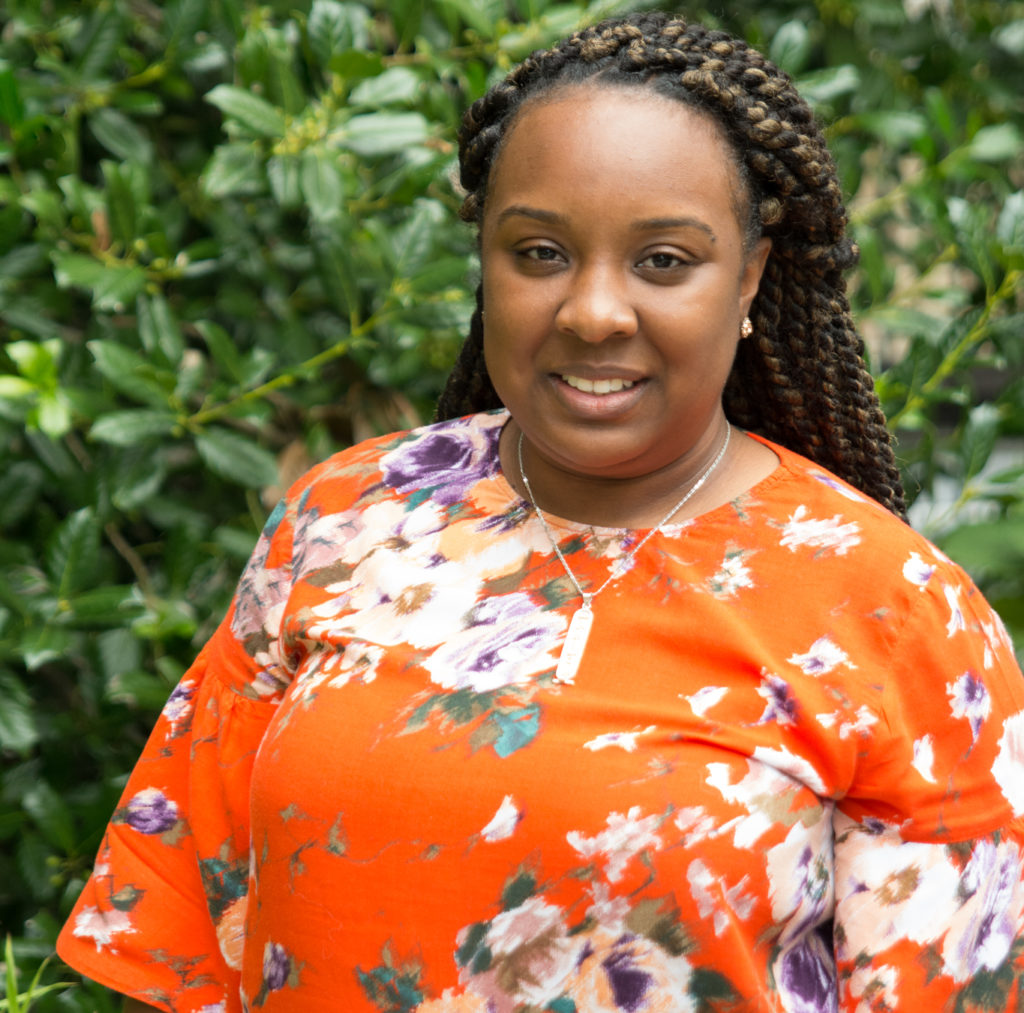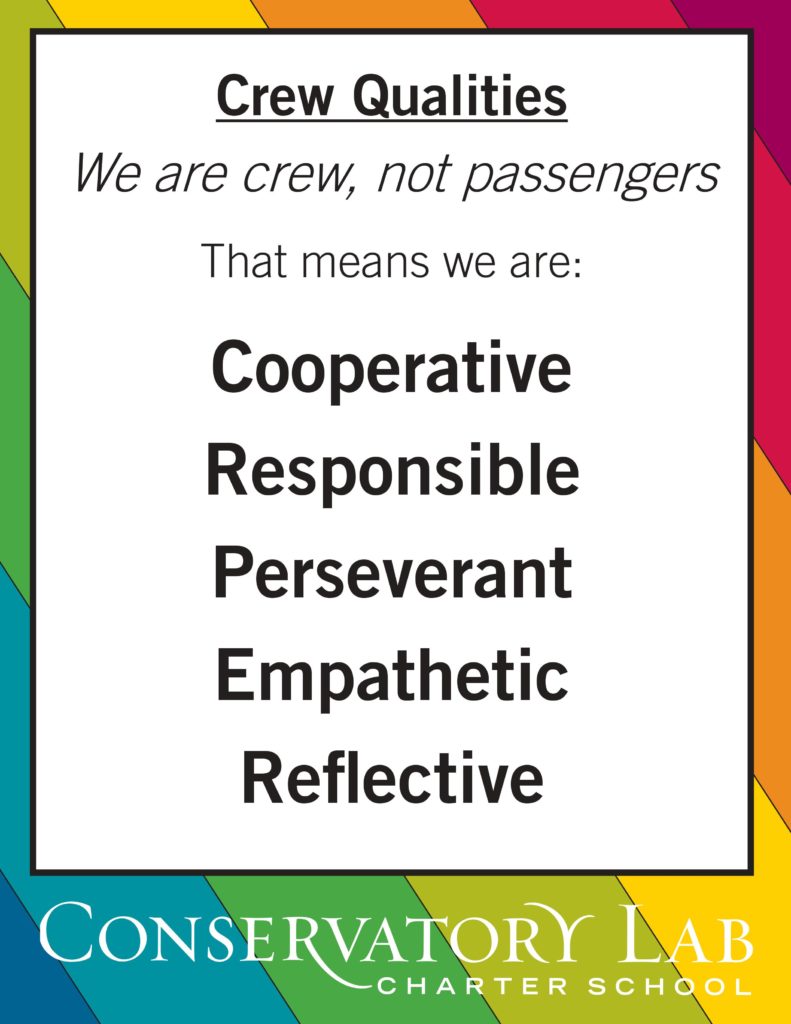This year, Conservatory Lab is proud to welcome Tamesha Webb as the Director of School Culture & Building Management. In this role, she will encourage students to love learning, explore, and lead with compassion.
In between inspiring students and empowering teachers, Ms. Webb took the time to chat with us about her role:
How did you first learn about Conservatory Lab Charter School (CLCS) and the Center for Artistry and Scholarship (CAS):
I began my early career in Baltimore; I first learned about Conservatory Lab as a graduate student at Harvard. I interned with Dr. Linda Nathan at the Center for Artistry and Scholarship (CAS) and they had received funding to support local school leaders/aspiring school founders. My job as an intern was figuring out how to distribute the money to support these leaders. I got to see first-hand how new school development works and the role that CAS played in developing school leaders through the Innovative School Design Incubator.
Can you discuss how you got into Education? How did you land your current role at Conservatory Lab?
Completing my internship confirmed my passion for school development/design, specifically within girls’ education. After graduating in 2018, I accepted a position that would give me the opportunity to lead the opening of an all-girls school in Newark, New Jersey. However, after a few months, due to leadership changes at the district-level, my role transitioned to leading professional development for the all-girls schools already in the network. I coached assistant principals and principals, and worked as a consultant, advising school leaders interested in replicating our school model across the country.
While I love working in girls’ education, I realized that this specific role was not the work that I was passionate about. I wanted more experience with leading adults and large teams, and I wanted to better understand how to establish a strong school culture through the actual practice of doing the work. I made the decision to return to a school setting full-time, so that I could continue to grow as a school leader and work with students directly. All of this led me back to Conservatory Lab.
How will you be impacting culture at Conservatory Lab?
The school culture already has a solid foundation; there is a lot of groundwork already here. I am elevating what is here, tightening things up, making sure systems and protocols are being implemented consistently, and making sure the culture is warm, welcoming, and joyful. I’m a huge believer that learning should be fun.
In my new role as the Director of School Culture, I am working on finding ways to proactively create the culture that we want, so that we don’t have to reactively respond to and manage the behaviors that do not align to our vision. For Conservatory Lab, I believe that if we increase or improve how Crew qualities (our Habits of Work and Learning) are reinforced throughout the day—this would positively impact student behaviors.
What do you hope to bring to Conservatory Lab?
My philosophy, and what I always tell people, is that I lead with love. When I think about school culture, I think about how we establish a school environment where students and teachers feel safe, loved, heard, and valued.
I’d like to shift the thinking around what it means to have tight structures in place and what behavior means. When people hear the word “behavior” it is often associated with a negative connotation. I want people to think of behavior in a different way. We’re going to have structure and systems but we’re also going to have fun. Systems allow us to reshape the perception of behavior and consider new methods of creating a positive culture.
What are you hoping educators, leaders, or schools will take away from the work that you’re doing at Conservatory Lab?
You might have heard of buzz phrases like “educating the whole child” (a more holistic approach to learning)—I want to push people to understand what that means when we say that.
Conservatory Lab is a part of EL Education—there are a lot of structures in place that contribute to educating the whole child. This is a big part of students’ way of life at Conservatory Lab and how HOWLS (Habits of Work & Learning) manifests is a seamless part of our day. I want people to think about educating the whole child in a non-compartmentalized way.
What’s your favorite CAS principle and how do you apply that to your own work in education and beyond?
What I loved about interning with CAS is that the organization really focused on trying to find schools that were/are doing something different. We were reviewing school proposals and assessing how schools were trying to be innovative within their school design.
What attracted me to Conservatory Lab was that other schools were so test-focused to the point that we were slowly losing love for the arts; I love that Conservatory Lab had a huge music component and gives students a different way to express leadership and mastery of core content areas; and how are we creatively thinking of ways to engage students in learning spaces.
What drives you?
I used to say that kids were kids everywhere and at one point what kept me at a job was my commitment to my team. What really drives me now and is the reason I cannot quit is because I’ve committed myself to working in communities of color. I see students that resemble my younger self, and my friends, and I can’t quit on them because it would be like quitting on myself; that’s what keeps me going, the community that we’re serving, that was once me in that seat. I have to make sure people are reminded of that.
Learn more about social-emotional learning at Conservatory Lab Charter School here.

